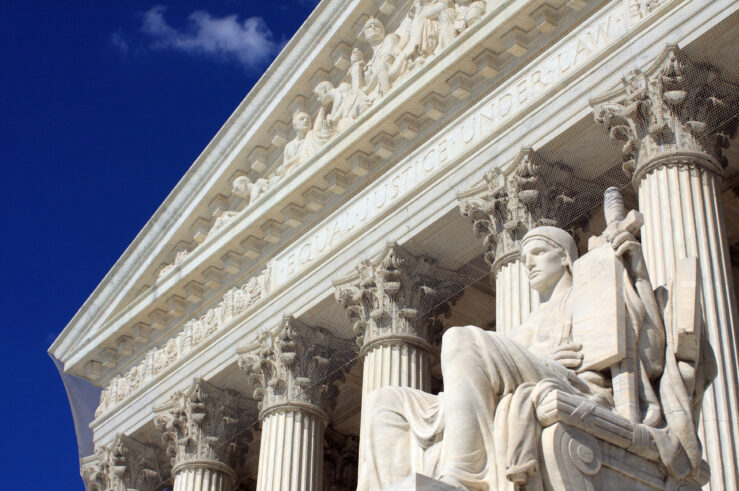Showing results for: “price gouging”
Dynamic Merger Efficiencies: The Case of Pharmaceutical Markets
The recent launch of the international Multilateral Pharmaceutical Merger Task Force (MPMTF) is just the latest example of burgeoning cooperative efforts by leading competition agencies to promote convergence in antitrust enforcement. (See my recent paper on the globalization of antitrust, which assesses multinational cooperation and convergence initiatives in greater detail.) In what is a first, ... Dynamic Merger Efficiencies: The Case of Pharmaceutical Markets
The Virtues and Pitfalls of Economic Models
Interrogations concerning the role that economic theory should play in policy decisions are nothing new. Milton Friedman famously drew a distinction between “positive” and “normative” economics, notably arguing that theoretical models were valuable, despite their unrealistic assumptions. Kenneth Arrow and Gerard Debreu’s highly theoretical work on General Equilibrium Theory is widely acknowledged as one of ... The Virtues and Pitfalls of Economic Models
NY ‘Abuse of Dominance’ Bill Attacks Consumer Welfare and the US Antitrust Tradition
U.S. antitrust law is designed to protect competition, not individual competitors. That simple observation lies at the heart of the Consumer Welfare Standard that for years has been the cornerstone of American antitrust policy. An alternative enforcement policy focused on protecting individual firms would discourage highly efficient and innovative conduct by a successful entity, because ... NY ‘Abuse of Dominance’ Bill Attacks Consumer Welfare and the US Antitrust Tradition
Breaking Down House Democrats’ Forthcoming Competition Bills
Democratic leadership of the House Judiciary Committee have leaked the approach they plan to take to revise U.S. antitrust law and enforcement, with a particular focus on digital platforms. Broadly speaking, the bills would: raise fees for larger mergers and increase appropriations to the FTC and DOJ; require data portability and interoperability; declare that large ... Breaking Down House Democrats’ Forthcoming Competition Bills
Bad Blood at the FTC
John Carreyrou’s marvelous book Bad Blood chronicles the rise and fall of Theranos, the one-time Silicon Valley darling that was revealed to be a house of cards.[1] Theranos’s Svengali-like founder, Elizabeth Holmes, convinced scores of savvy business people (mainly older men) that her company was developing a machine that could detect all manner of maladies from ... Bad Blood at the FTC
Against the Jones Act
Economist Josh Hendrickson asserts that the Jones Act is properly understood as a Coasean bargain. In this view, the law serves as a subsidy to the U.S. maritime industry through its restriction of waterborne domestic commerce to vessels that are constructed in U.S. shipyards, U.S.-flagged, and U.S.-crewed. Such protectionism, it is argued, provides the government ... Against the Jones Act
European Commission Objection to App Store Rules Lack Empirical Support
The European Commission recently issued a formal Statement of Objections (SO) in which it charges Apple with antitrust breach. In a nutshell, the commission argues that Apple prevents app developers—in this case, Spotify—from using alternative in-app purchase systems (IAPs) other than Apple’s own, or steering them towards other, cheaper payment methods on another site. This, ... European Commission Objection to App Store Rules Lack Empirical Support
In Defense of the Jones Act
Chances are, if you have heard of the Jones Act, you probably think it needs to be repealed. That is, at least, the consensus in the economics profession. However, this consensus seems to be driven by an application of the sort of rules of thumb that one picks up from economics courses, rather than an ... In Defense of the Jones Act
The Future of FTC Equitable Monetary Relief after AMG Capital Management
The U.S. Supreme Court’s just-published unanimous decision in AMG Capital Management LLC v. FTC—holding that Section 13(b) of the Federal Trade Commission Act does not authorize the commission to obtain court-ordered equitable monetary relief (such as restitution or disgorgement)—is not surprising. Moreover, by dissipating the cloud of litigation uncertainty that has surrounded the FTC’s recent ... The Future of FTC Equitable Monetary Relief after AMG Capital Management
The FTC Did Not ‘Fumble the Future’ in Its Google Search Investigation
Politico has released a cache of confidential Federal Trade Commission (FTC) documents in connection with a series of articles on the commission’s antitrust probe into Google Search a decade ago. The headline of the first piece in the series argues the FTC “fumbled the future” by failing to follow through on staff recommendations to pursue ... The FTC Did Not ‘Fumble the Future’ in Its Google Search Investigation
The Problem of Data Property Rights
Policy discussions about the use of personal data often have “less is more” as a background assumption; that data is overconsumed relative to some hypothetical optimal baseline. This overriding skepticism has been the backdrop for sweeping new privacy regulations, such as the California Consumer Privacy Act (CCPA) and the EU’s General Data Protection Regulation (GDPR). ... The Problem of Data Property Rights
Congress Should Not Legalize a News Media Cartel
Amazingly enough, at a time when legislative proposals for new antitrust restrictions are rapidly multiplying—see the Competition and Antitrust Law Enforcement Reform Act (CALERA), for example—Congress simultaneously is seriously considering granting antitrust immunity to a price-fixing cartel among members of the newsmedia. This would thereby authorize what the late Justice Antonin Scalia termed “the supreme ... Congress Should Not Legalize a News Media Cartel














